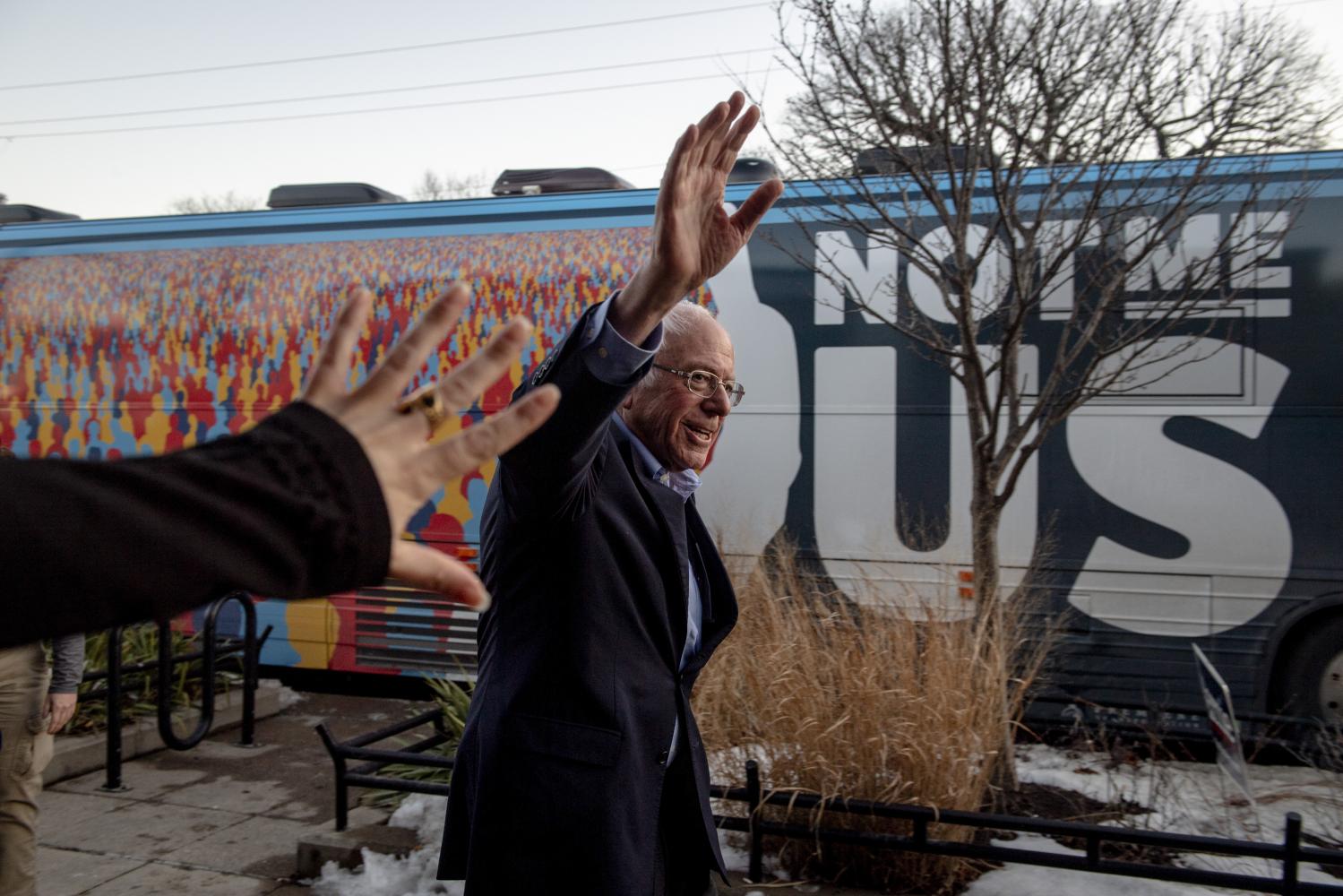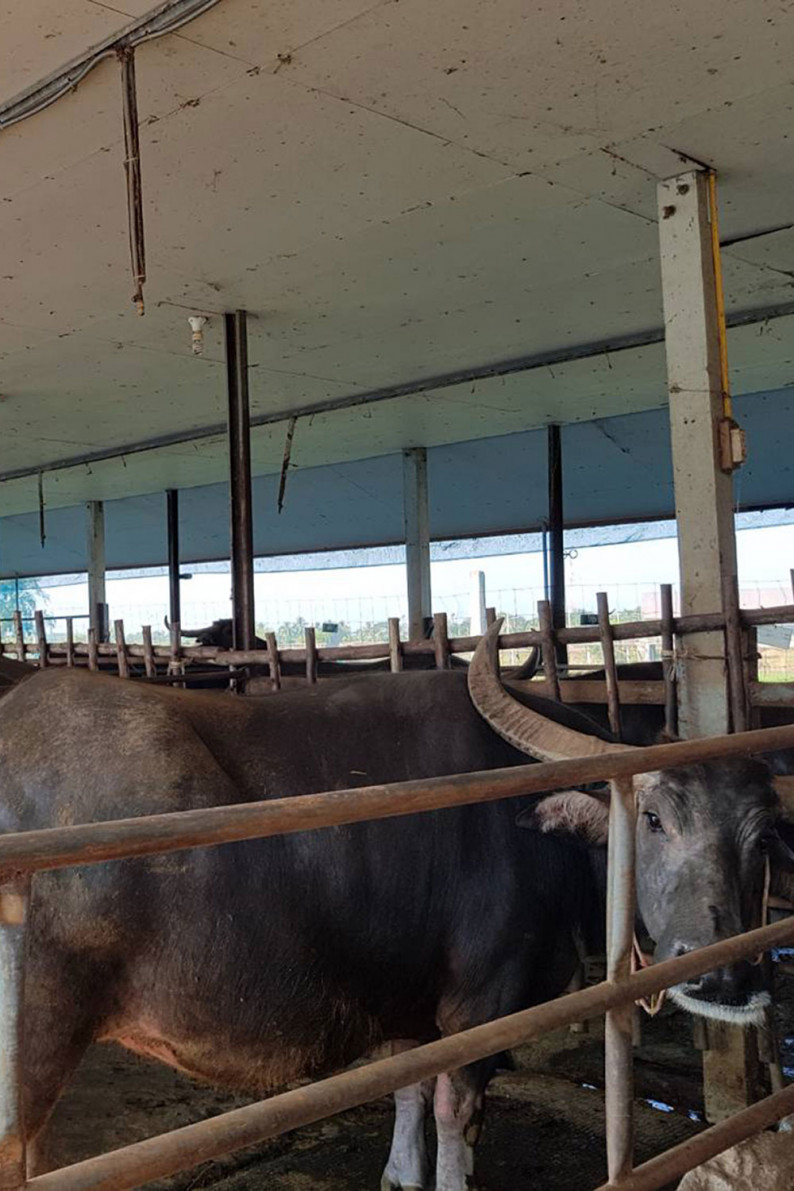
Investors are betting the volatility that has rattled markets over the past two weeks is here to stay.
Many are bracing for dramatic swings in stocks as the U.S. presidential election season ramps up and investors assess the impact of the coronavirus outbreak on global economic activity.
Options traders are forecasting increased volatility around key dates tied to the election, including Monday's Iowa caucuses. They are picking up stock hedges that would pay out if turbulence continues to jump in coming months.
Those bets coincide with a pause in the stock market's record run. Worries about the coronavirus have driven the S&P 500 down 3.1% from its Jan. 17 record and into the red for 2020.
Some investors have dished out money for insurance-like contracts tied to a broader pullback. Others have placed targeted wagers on individual sectors, girding for different candidates' positions to spark volatility in corners of the market like health care or financials.
"We saw people start to worry," said Ilya Feygin, a managing director at brokerage WallachBeth Capital. "People had refused to just cut exposure, and they scrambled once the market started going down."
The gyrations are a reminder of some of the obstacles that could cap further market gains.
Traders also were preparing for the reopening of stock markets in China, which have been unnerved by the rapidly spreading coronavirus.
The last time mainland-listed Chinese stocks traded was Jan. 23, two days before the start of the Lunar New Year. The markets were originally scheduled to reopen on Friday, but that was pushed to Monday when China extended its national holiday in an attempt to slow the virus's spread.
While China's markets were closed, Hong Kong's stock market and the Hang Seng China Enterprises Index--which tracks large Chinese companies listed in Hong Kong--both fell sharply.
This week, investors also will get a fresh read on manufacturing activity in the U.S. Last week, earnings from heavyweights like Caterpillar Inc. and Boeing Co. showed strains in the sector, heightening worries about the economy.
Other bellwether companies including Google parent Alphabet Inc., Ford Motor Co. and Walt Disney Co. will report results in the coming week. And investors will look to Friday's monthly jobs report to see whether the labor market can continue its healthy pace of growth.
Investors are positioned for big moves in the stock market as soon as this week. Options traders are forecasting about a 1.3% move up or down in the S&P 500 on Tuesday, the trading session after the Iowa caucuses, according to data from Cornerstone Macro LLC. They have also been projecting big swings around Super Tuesday in March and the November election, according to Wells Fargo Securities.
Trading activity and options prices have been sensitive to polling figures predicting which Democratic candidate will face off against President Trump in the November presidential election. Activity has surged and dropped as different contenders have gained popularity and investors calculated what effect their policies would have on markets.
"As it seems like Bernie [Sanders] gains in the polls...the market's now implying a larger move," around the caucuses, said Danny Kirsch, head of options at Cornerstone Macro. "People are already trying to get in front of the election now."
Medicare for All proposals by presidential candidates Sen. Sanders and Sen. Elizabeth Warren, for example, whipped health-care stocks throughout much of last year, making it one of the S&P 500's weaker sectors in terms of performance. Ms. Warren's proposals have also included breaking up big banks, stirring volatility among those stocks as well.
As a result, options investors are forecasting outsize moves for exchange-traded funds like the Health Care Select Sector SPDR Fund and the Financial Select Sector SPDR Fund in the coming months, according to Goldman Sachs Group Inc.
Traders said they have noticed a pickup in bearish bets against the stock market recently. There have been several large-block purchases of bullish call options on the Cboe Volatility Index, known as the VIX, including in the past week, they said. The options are dated to expire in February and March, with many slated to expire after the coming caucuses and primaries in Iowa and New Hampshire and just before Nevada's primaries on Feb. 22.

For example, some of the biggest options positions outstanding on the VIX are linked to the index jumping to 22 or 25 through February, according to data provider Trader Alert. The gauge, which tends to rise ahead of presidential elections, closed Friday at 18.84.
These types of trades have the potential to pay out hefty sums if stock prices swing violently. The VIX tends to rise when stocks fall, making a bullish bet on the volatility gauge akin to a bearish one on stocks.
Traders and analysts said the hedging activity is likely fueled by investors seeking to remain invested in stocks and protect their holdings during a potential pullback. Although many investors entered 2020 relatively upbeat about stocks, several predicted that volatility throughout the year would keep indexes' gains capped in the single digits rather than the near-30% rise the S&P 500 racked up in 2019.
The activity highlights how some investors are preoccupied with broader risks like the spreading virus and presidential election to markets, rather than individual earnings results.
"The biggest risk this year is political risk," said Mark Giambrone, a managing director and portfolio manager at asset manager Barrow Hanley Mewhinney & Strauss LLC. "Some policies suggested by candidates have been extreme and that's stirred up volatility."
Some investors said they are reluctant to take the other side of the trade: selling bullish options on the VIX in a wager that markets will revert to calm.
"We just don't know what's going to happen with the coronavirus or Super Tuesday [in March]," said Jim Carney, chief executive of hedge fund Parplus Partners. "I see no upside to being short market movements right now."
Stella Yifan Xie and Steven Russolillo contributed to this article.
